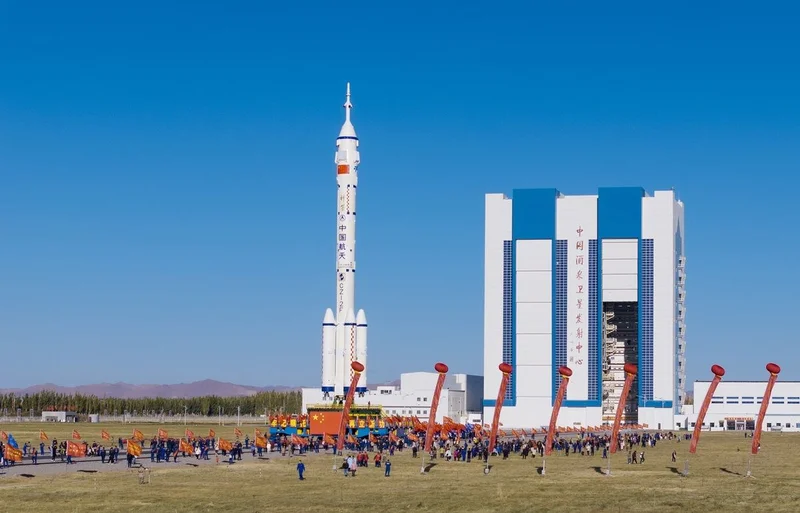Rocket Launch Today: What Happened and Why It Matters
Title Fulfillment: SpaceX's Launch Doubleheader: Are They Pushing Too Hard?
SpaceX just pulled off a launch doubleheader, sending two Falcon 9 rockets skyward from Florida's Space Coast within hours. The first, Starlink 6-89, lifted off from Launch Complex 39A at 10:08 p.m. EST. The second followed at 1:44 a.m. EST. Both carried Starlink satellites into low-Earth orbit, continuing the buildout of SpaceX's broadband internet constellation. The weather cooperated, with forecasters predicting a greater than 95 percent chance of favorable conditions. SpaceX recap: Launch doubleheader powers back-to-back Starlink missions from Cape Canaveral The first launch employed Falcon 9 booster B1092, marking its eighth flight. It previously supported missions like CRS-32, GPS III SV08, and NROL-69. This time, it landed successfully on the drone ship 'A Shortfall of Gravitas,' the 132nd landing on that vessel and SpaceX's 533rd booster landing overall. The second launch saw a Falcon 9 booster complete its twenty-fourth mission, landing on the drone ship 'Just Read the Instructions.'
The Pace of Progress vs. The Risk of Failure
What's striking isn't just the success of these launches, but the sheer frequency. Space Force officials are heralding Florida's broken annual launch record. SpaceX VP of Launch Kiko Dontchev even tweeted about it, comparing the Space Coast to Hartsfield-Jackson Atlanta International Airport (ATL), the world’s busiest airport. He noted that ATL handled about 108 million passengers and around 800,000 aircraft movements in 2024. "We have some work to do to achieve aircraft like operations," he said.
But is this a realistic comparison? Airports manage controlled chaos. Every aircraft is meticulously maintained, flight paths are regulated, and safety protocols are paramount. Rocket launches, even with reusable boosters, are inherently more complex and riskier. Comparing launch cadence to air traffic volume feels like a marketing ploy, not a genuine operational assessment. The question isn't if something will go wrong, but when, and what the cascading effects will be on the Starlink constellation.
Andy Lapsa, CEO of Stoke Space, made an interesting comment on Twitter: "It was less than 10 years ago when the idea of recovering a 1st stage was extremely controversial. Now it's absurd to even consider anything else." He sees second-stage reuse as the next frontier. But focusing solely on reusability might be blinding us to other potential points of failure. Are we so enamored with the idea of rapid launch cadence that we're overlooking potential cracks in the system?

External Factors & Internal Pressures
It's worth remembering that Blue Origin recently postponed a New Glenn launch due to a "severe" geomagnetic storm watch. Did solar storm force New Glenn scrub? Blue Origin postpones rocket launch again The Space Weather Prediction Center warned of potential interference with spacecraft. Blue Origin and NASA cited these conditions as the reason for the delay. While SpaceX proceeded with its launches, the incident raises a crucial point: how resilient is the Starlink constellation to unexpected solar events, especially with so many satellites in orbit?
I've looked at these launch reports for years, and I'm struck by how rarely external factors are discussed in detail. Weather gets a passing mention, but the broader space environment—the increasing density of orbital debris, the potential for collisions, and the long-term effects of radiation on satellite hardware—seems downplayed. Are these risks being adequately factored into the launch schedule, or is the pressure to deploy more satellites overriding caution?
SpaceX's success is undeniable. But the push for ever-higher launch frequencies raises uncomfortable questions. Are they truly operating with "aircraft-like operations," or are they pushing the limits of their technology and infrastructure? What are the long-term consequences of this relentless pace? And, perhaps most importantly, what data aren't they sharing about the real-world risks of their ambitious expansion?
The Data Isn't Telling the Whole Story
The launches were successful, the boosters landed, and the satellites deployed. But behind the impressive statistics and carefully crafted PR, a nagging question remains: are we sacrificing long-term reliability for short-term gains?
